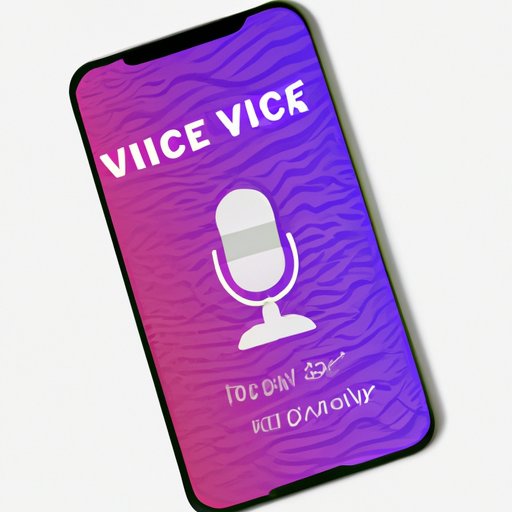
How to Record a Conversation on iPhone: Everything You Need to Know
Recording conversations can be a useful tool in a variety of situations. Whether you want to capture an interview, save an important memory, or just keep a record of your conversations, iPhones offer a range of options for recording audio.
Using the Default Voice Memo App
The easiest and most straightforward way to record a conversation on your iPhone is by using the default voice memo app.
First, locate the voice memo app on your iPhone. It is usually found in the Utilities folder, but you can also search for it using the search bar at the top of your home screen.
Once you’ve opened the app, click the large red record button to begin recording. To stop recording, simply click the square stop button. You can also pause and resume recording by clicking the appropriate button.
It’s important to note that the audio quality of the voice memo app may not be optimal in all situations. To get the best sound quality, try recording in a quiet, well-lit environment, and hold the phone steady while recording.
Third-Party Recording Apps
If you are looking for more advanced features, there are several third-party recording apps available on the App Store that offer additional functionality.
Popular apps include TapeACall, Rev Call Recorder, and Call Recorder – IntCall. These apps often feature options like call recording, the ability to record in different formats, and the ability to transcribe audio into text.
To use a third-party recording app, simply download and install it from the App Store, open the app, and follow the instructions for recording.
Optimizing Audio Quality
No matter what recording method you choose, it’s important to optimize your audio quality to get the best possible results.
One way to do this is by using quality mics and headphones. External mics can improve the audio quality of your recordings significantly. When selecting a mic, look for features like directional recording, noise reduction, and wind protection.
If you’re recording in a noisy environment, noise-cancelling headphones can help you monitor your audio more effectively. Look for headphones that offer good sound isolation, comfortable padding, and a clear soundstage.
Of course, you’ll need to balance the need for quality with the practicality of a portable recording setup. A handheld recorder or a portable mic that attaches to your iPhone may be more convenient for on-the-go recording.
Legal and Ethical Considerations
Recording conversations can raise legal and ethical concerns in certain situations.
In some states, it is illegal to record a conversation without the consent of all parties involved. Other states have one-party consent laws, which means that only one person in the conversation needs to give their consent for the recording to be legal.
It’s important to research the laws in your state before recording conversations, especially if you plan to use the recordings in any legal or official capacity.
Even in states where it is legal to record conversations, it’s important to consider the ethical implications. Always be transparent about recording, and respect the privacy and dignity of your subjects.
Creative Uses for Recorded Conversations
Recorded conversations can also be repurposed in a variety of creative ways.
For example, transcribing recorded conversations can be a valuable tool for research. Podcasters and bloggers can use recorded conversations as source material for interviews, or as content for blog posts or episodes.
Be creative and think outside the box to find unique uses for your recorded conversations!
Conclusion
Recording conversations on your iPhone can be a useful tool in a variety of situations. Whether you’re using the default voice memo app or a third-party recording app, optimizing your audio quality is key to getting great results. However, it’s important to consider the legal and ethical implications of recording conversations, and always be transparent and respectful in your approach.
By following these tips and considering your options, you can easily and effectively record conversations on your iPhone for personal or professional use.




